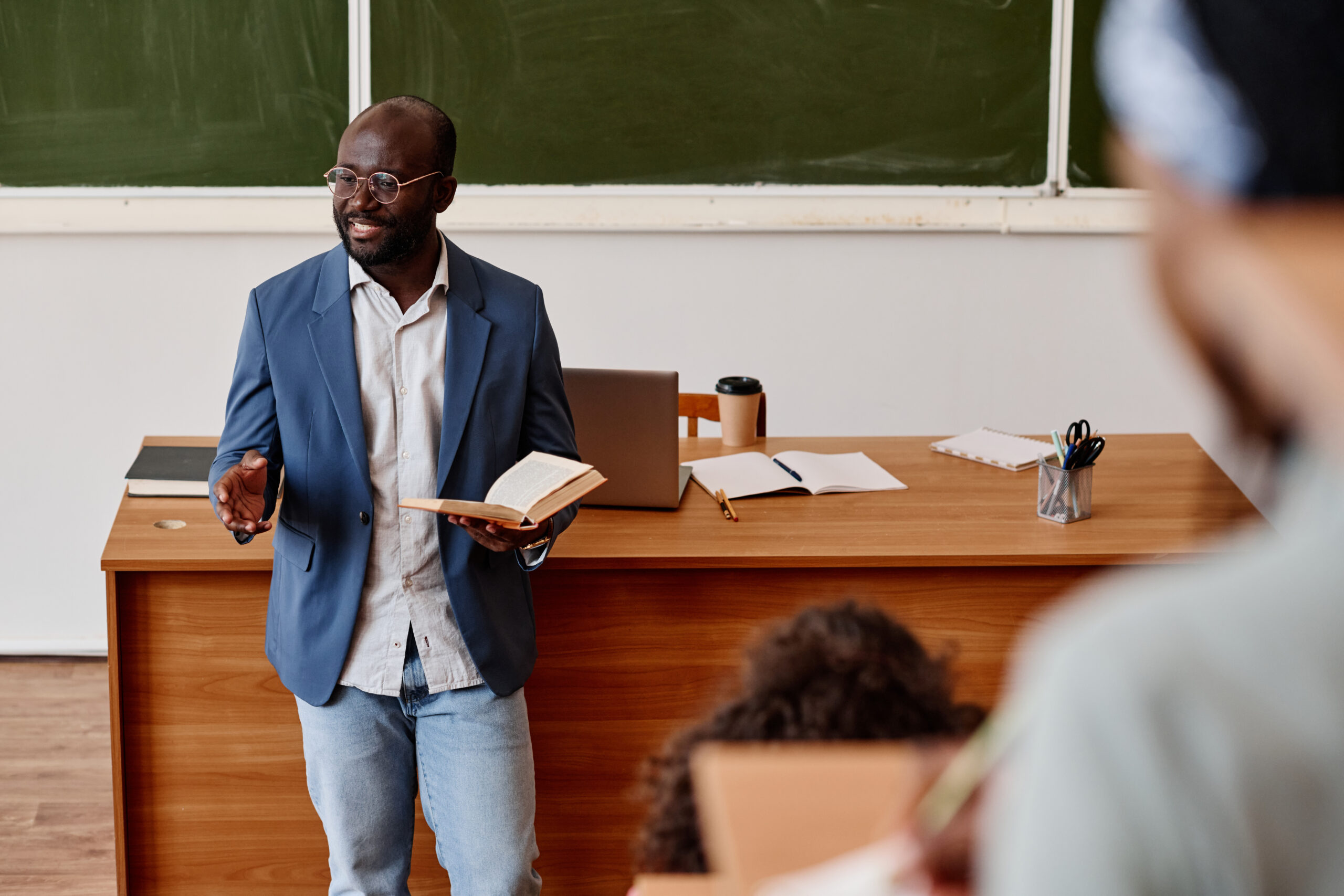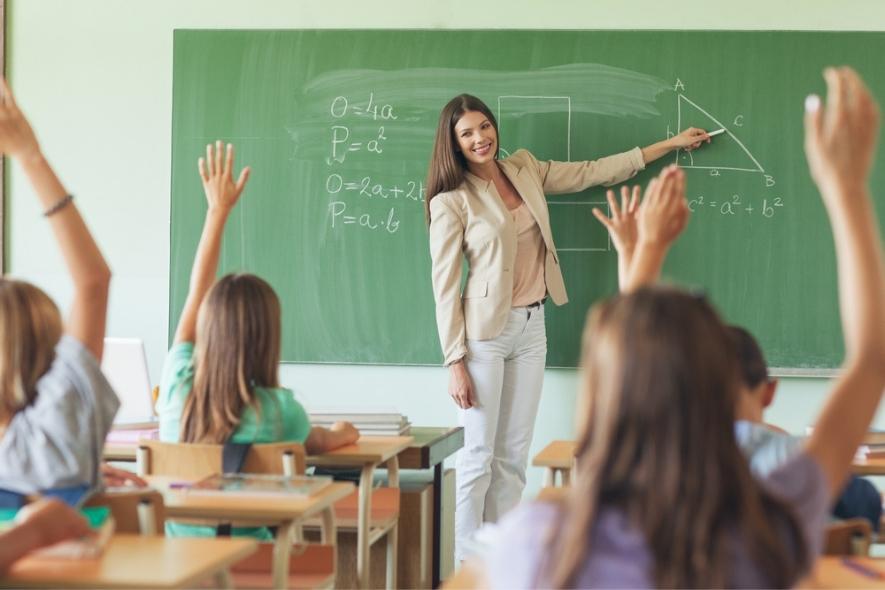Get Top Results with Primary Science Tuition Singapore from Experienced Tutors
Get Top Results with Primary Science Tuition Singapore from Experienced Tutors
Blog Article
Discovering the Different Training Techniques in Primary Science Education And Learning Today
Inquiry-based knowing, hands-on experiments, and the assimilation of technology are redefining exactly how educators involve young minds. In addition, collective methods and separated guideline are being employed to cater to the diverse requirements of students, boosting both interaction and understanding.
Inquiry-Based Knowing
Inquiry-Based Learning (IBL) is a pedagogical approach that motivates pupils to explore scientific ideas with questioning, examination, and hands-on testing. This technique emphasizes the function of students as active individuals in their learning, promoting important thinking and analytical skills. By involving with real-world inquiries, students come to be interested and inspired, which improves their understanding of clinical principles.
In IBL, instructors act as facilitators, guiding students as they browse their queries instead of supplying information directly. This student-centered method enables for distinction, accommodating various discovering designs and rates. Trainees develop skills in developing hypotheses, making experiments, and examining information, which are vital for clinical literacy.
In addition, IBL fosters partnership amongst pupils, motivating them to share searchings for and ideas. This collective query advertises social skills and a feeling of area within the class. The procedure of inquiry urges strength, as pupils find out to welcome failure as a tipping stone toward understanding.
Hands-On Experiments
Hands-on experiments are an important component of efficient science education and learning, matching the principles of inquiry-based understanding. These experiments allow pupils to engage straight with scientific ideas, promoting a deeper understanding with experiential understanding. By manipulating materials and observing outcomes, young students can realize abstract theories in substantial ways.
Such activities promote essential reasoning and analytic skills, as pupils hypothesize end results, conduct experiments, and evaluate outcomes. This process urges them to ask inquiries, fine-tune their understanding, and create a scientific state of mind. Furthermore, hands-on experiments can be tailored to diverse learning designs, making sure that all students have the opportunity to involve meaningfully with the web content.
In addition, hands-on experiments commonly motivate cooperation among peers, promoting teamwork and interaction abilities. Functioning in teams allows trainees to share ideas, review searchings for, and pick up from one another, which enhances their total academic experience.
Including hands-on experiments right into the main science curriculum not just improves the learning environment yet additionally cultivates a long-lasting rate of interest in science. By actively taking part in their education and learning, students are extra likely to establish an interest for clinical questions that extends past the classroom.

Innovation Integration
Integrating innovation into main science education and learning has actually ended up being increasingly vital in promoting trainee engagement and boosting learning outcomes. Using digital devices, such as interactive simulations, digital laboratories, and academic software, provides students with chances to check out scientific principles in innovative means. These sources assist in a much deeper understanding of complex topics by permitting students to visualize and adjust variables that would certainly be not practical in a standard class setup.
Furthermore, technology assimilation motivates personalized finding out experiences. Pupils can proceed at their own rate, taking another look at difficult concepts with multimedia sources, which satisfy various discovering styles. This flexibility not just sustains private development however additionally grows a sense of freedom in learners.
In addition, modern technology functions as a bridge to real-world scientific research, connecting students with link present study and specialist contributions. Accessibility to clinical journals and on the internet data sources expands trainees' point of views on scientific questions and cultivates crucial believing abilities.
Collaborative Understanding
Collaborative knowing plays a vital function in key science education and learning by cultivating teamwork and interaction skills among pupils. This method urges learners to collaborate, share expertise, and involve in analytical, which enhances their understanding of scientific concepts. By taking part in group activities, trainees discover to articulate their concepts, listen to varied perspectives, and negotiate options, every one of which are necessary skills in both real-world and scholastic contexts.

Research study shows that joint learning can bring about enhanced inspiration and interaction in science topics, as pupils discover pleasure in shared experiences (primary science tuition Singapore). Additionally, this approach prepares trainees for future joint endeavors, furnishing them with the abilities necessary for reliable teamwork in greater education and learning and specialist environments. Eventually, embracing collaborative discovering in main science education can moved here significantly enrich the discovering experience and advertise a deeper understanding of scientific query
Differentiated Instruction

Set apart direction can show up in various means, such as differing the web content, processes, or products of knowing. For instance, educators might utilize tiered assignments that provide differing levels of intricacy, allowing students to operate at their corresponding readiness degrees. Additionally, versatile organizing approaches can assist in cooperation amongst students with various abilities, cultivating peer knowing.
Analysis plays an essential duty in this technique, as it informs direction and assists instructors comprehend each pupil's one-of-a-kind demands. Formative assessments, such as tests and monitorings, can guide educators in adjusting their methods to improve discovering outcomes. primary science tuition Singapore. Ultimately, by carrying out separated direction in key science education, teachers can grow a much more reliable and equitable learning environment, encouraging all students to reach their full possibility in understanding clinical phenomena
Verdict
In summary, the diverse teaching strategies in main science education, consisting of inquiry-based discovering, hands-on experiments, modern technology combination, collaborative learning, and separated instruction, collectively add to a more reliable understanding atmosphere. These techniques advertise vital thinking, problem-solving abilities, and a much deeper comprehension of scientific ideas. By executing these strategies, teachers can develop interesting and supportive classrooms that address the different needs of students, inevitably cultivating a lifelong interest see this website in science and boosting scholastic accomplishment.
Inquiry-Based Discovering (IBL) is an instructional method that motivates pupils to check out clinical concepts with questioning, examination, and hands-on trial and error.Joint learning plays an important duty in main scientific research education and learning by promoting synergy and interaction abilities amongst students.Research indicates that collaborative knowing can lead to boosted motivation and involvement in scientific research subjects, as students find pleasure in shared experiences.In promoting a comprehensive discovering setting, distinguished guideline emerges as an essential strategy to fit the diverse requirements and abilities of trainees in main science education. Inevitably, by applying differentiated instruction in primary science education and learning, teachers can grow a much more effective and equitable knowing atmosphere, equipping all pupils to reach their complete potential in understanding scientific sensations.
Report this page